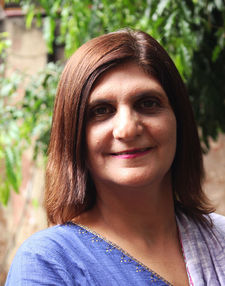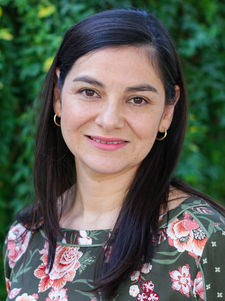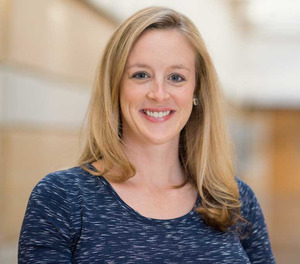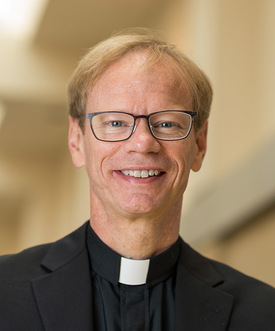Domestic Violence: Empowerment and Community Intervention
Perspectives from India, Mexico and the United States during this time of COVID
Notre Dame International invites all members of the Notre Dame community and friends of the University to the third event in a series of virtual events dedicated to internationalizing conversations on issues of vital importance.
The event will focus on domestic violence. With indicators during the COVID-19 pandemic that all types of violence against women, particularly domestic violence, have increased and intensified, the United Nations has called this a “shadow pandemic.” During the roundtable we will ask: what are some of the complex intersections of domestic violence and COVID-related stressors?; what are the pressing priorities for intervention and prevention for individuals/families at risk?; how has the COVID pandemic revealed strengths and weaknesses to the adaptability of our approaches with families, particularly those who are marginalized?; what policy recommendations might strengthen communities and provide the necessary resources for survivors?
We will feature perspectives from three countries: India, Mexico and the USA.
Moderator: Laura Miller-Graff*, associate professor of psychology and peace studies, University of Notre Dame
Host: Rev. Robert Dowd, C.S.C.**, assistant provost for internationalization and associate professor of political science, University of Notre Dame.
PLEASE NOTE: Indicated event times are U.S. Eastern Time.
Panelists

Amy Bonomi is professor and director of Michigan State University’s Women’s Leadership Institute. The vision of the Women's Leadership Institute is to create leadership equity by fostering women leaders globally. Dr. Bonomi’s scholarship and practice focuses on equity, anti-violence and anti-oppression. Her work on domestic violence recantation is nationally renowned, with her publications regularly used and cited in U.S. courts. In 2019, Dr. Bonomi published Women Leading Change in Academia: Breaking the Glass Ceiling, Cliff and Slipper which examines the perspectives of 23 female leaders on leadership and the challenges of confronting structural racism, bias and discrimination at colleges and universities. She regularly trains organizations on unconscious bias and leading through an equity lens.

Nayreen Daruwalla with a Ph.D. in Social Psychology and additional background in clinical psychology has worked on gender-based violence for the last twenty years. She developed the program Prevention of Violence against Women and Children at SNEHA (Society for Nutrition, Education and Health Action), a non-profit organization working on public health issues in Mumbai, India. She serves as Director for SNEHA, leading programs on prevention of gender-based violence with communities in urban informal settlements. She is the principal investigator from SNEHA on a study to prevent violence against women and girls in urban settlements of Mumbai. Her practice and research have contributed both to the discourse and interventions on gender-based violence in South Asia. She has conceptualized model interventions for violence prevention adaptable for low and middle-income countries. Foci of these interventions include mental health and gender-based violence, community intervention, and institutional response to gender-based violence. Currently, Dr Daruwalla has designed the research study of a complex intervention for primary and secondary prevention of gender-based violence in India. Internationally, she partners on research with University College London, UK.

Cecilia Martinez-Torteya received her Ph.D. in Clinical Psychology from Michigan State University. She is a Research Professor at Universidad de Monterrey, in Mexico, and is part of the National System of Investigators. Her research addresses the mental health impacts of interpersonal violence on women and their children, as well as neuroendocrine, family, and environmental factors that amplify risk or promote resilience. She is an investigator on a large multi-site national study of the psychological effects of COVID-19 in Mexico. Currently, she also collaborates with the State Women’s Institute, researchers at University of Notre Dame, and the University of Memphis to adapt and evaluate an intervention for women exposed to partner violence during pregnancy.

*Laura Miller-Graff's research examines the developmental effects of exposure to violence in childhood. With a focus on children who have multiple traumatic exposures, she investigates resulting patterns of resilience and psychopathology, including the development of posttraumatic stress symptoms. Working within an ecological framework, Dr. Miller-Graff's research seeks to understand how various systems (i.e., individual, family, and community) interact to promote or inhibit healthful development following violence exposure. Dr. Miller-Graff has a particular interest in the adaptation and evaluation of trauma assessment and treatment in LMIC and conflict-affected settings. Current research projects include the effects of intimate partner violence (IPV) on women and children’s health and adjustment in the perinatal period factors contributing and the adaptation, development and evaluation of psychological interventions for violence-exposed pregnant women and for families living in settings of chronic violence.

**Rev. Robert Dowd, C.S.C., associate professor of political science, assumed the position of assistant provost for internationalization with Notre Dame International in February, 2020. His primary responsibilities include leadership of the Dublin Global Gateway, Kylemore Abbey Global Centre, and the São Paulo Global Center; and future engagement with Africa.
Father Bob is a Notre Dame graduate with a Ph.D. in political science from UCLA. His research interests include African politics, ethnic politics, and the relationship between religion, political institutions, national identity, and human development. He is author of the book, Christianity, Islam and Liberal Democracy: Lessons from sub-Saharan Africa (Oxford University Press, 2015), and several articles on African politics. He is currently focusing on research concerning religion and the integration of migrants/refugees in Europe and North America and the effects of faith-based schools on citizenship and civic engagement in Africa.
Originally published at international.nd.edu.